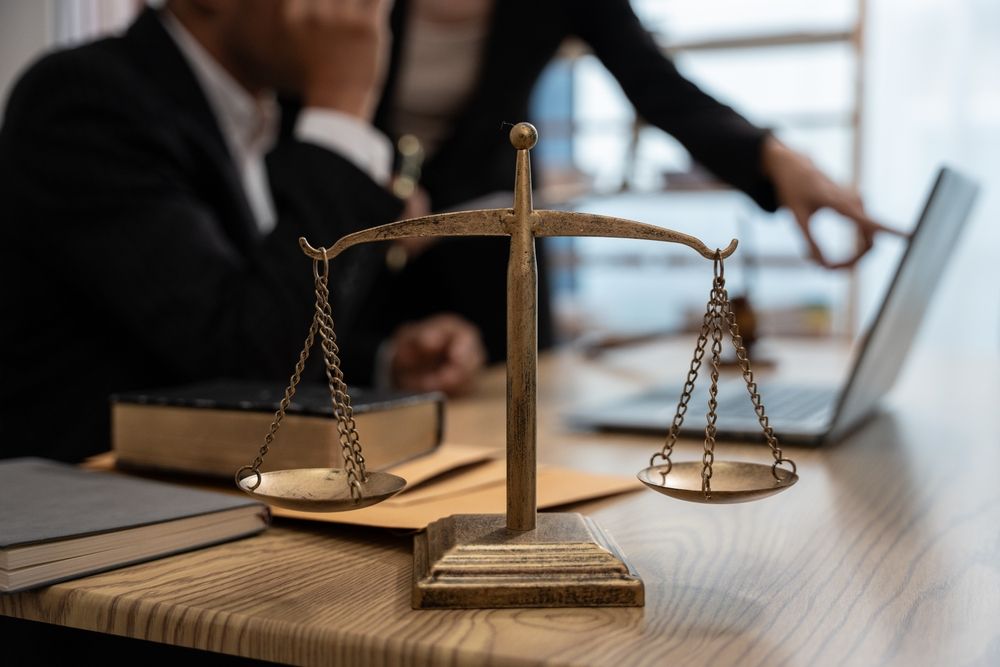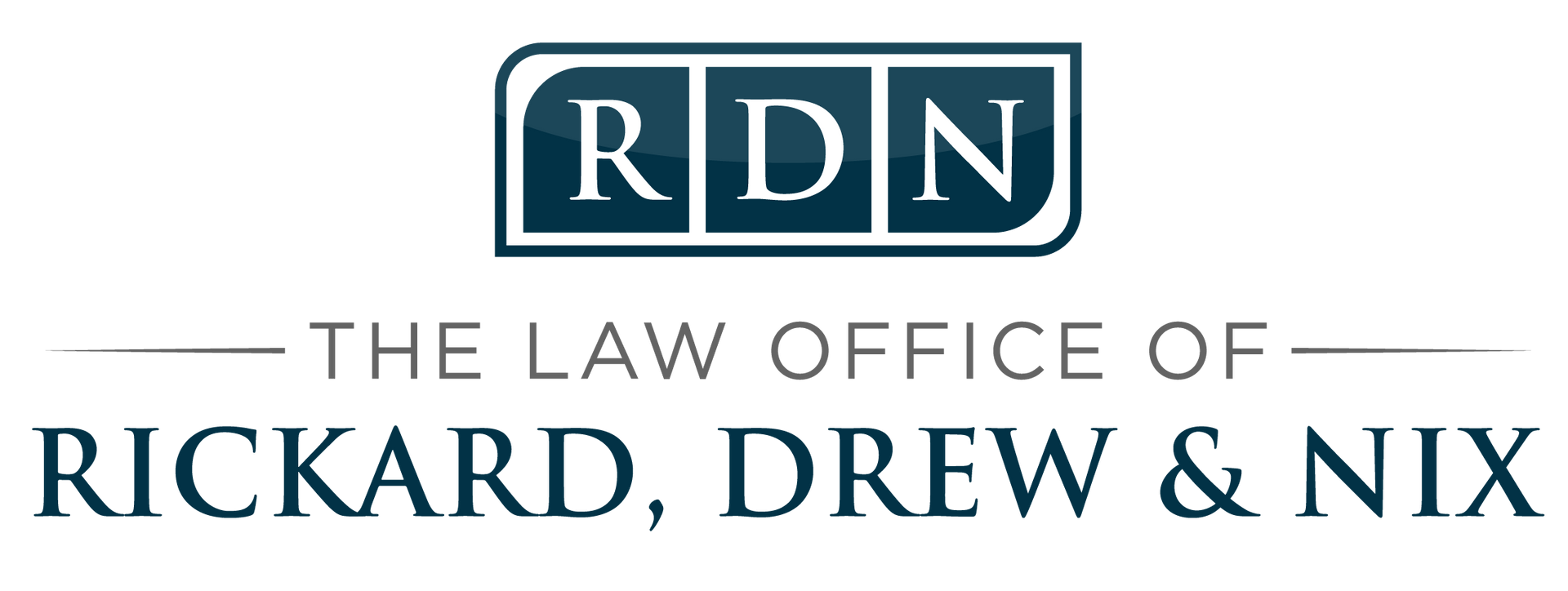What Causes Most Truck Accidents in Atlanta
Most drivers have an idea of what causes trucking accidents, but they are only partially correct. Sure, drunk operators, irresponsible drivers, and old equipment cause many accidents, but there are other causes that a big rig driver can't do anything about except react. Weather conditions, erratic drivers in cars and SUVs, and roads badly in need of repair also cause hundreds of accidents each year.
Truck accidents in Atlanta are a serious concern, often resulting in severe injuries and even death. Understanding the main causes of these incidents is crucial for improving road safety. This article explores various factors contributing to truck accidents, including driver-related issues like tailgating and brake failures, environmental conditions, and the influence of regulations from the Federal Motor Carrier Safety Administration. By gaining insight into these causes, readers can better manage the risks associated with truck travel and advocate for safer practices on the roads.
What Types of Trucks Are Involved in Most Accidents in Atlanta?
In Atlanta, various types of trucks are frequently linked to accidents on the road. Among these, large commercial vehicles, such as tractor-trailers and flatbeds, are predominant contributors to truck accidents. Their significant size and weight create substantial hazards, particularly in busy urban traffic conditions.
Construction trucks also play a major role in accident statistics. These vehicles often transport heavy equipment and materials and can be highly disruptive when traveling through construction zones. The combination of their size and the dynamic nature of construction sites increases the likelihood of a truck accident involving other motorists or pedestrians.
Box trucks and delivery vans are another category frequently involved in collisions. Their compact size might suggest they are less dangerous, but their presence in densely populated areas, coupled with driver behavior such as sudden stops or lane changes, poses serious hazards. These behaviors can escalate into truck accident cases that impact both the drivers and surrounding vehicles.
The behavior of truck drivers is a critical factor in many accidents. Factors such as fatigue, distraction, and inadequate training can lead to poor decision-making on the road. Understanding how these behavioral elements contribute to truck accidents is essential for minimizing risks and enhancing safety for all road users in Atlanta.
Understanding Driver-Related Causes of Truck Accidents
Several driver-related factors significantly contribute to truck accidents in Atlanta. Fatigue, influenced by hours of service regulations, can impair decision-making and reaction times. Distracted driving has become another major concern, undermining a driver's duty of care. Moreover, incidents of drunk driving present serious risks on the road. Implementing effective driver training is essential to counter these issues and promote safer driving practices.
Fatigue as a Contributing Factor
Fatigue is a significant factor contributing to truck accidents on Atlanta's highways. When commercial vehicle drivers do not get adequate rest, their ability to react quickly diminishes, leading to dangerous situations on the road. For instance, fatigue can result in delayed responses to sudden stops or turns, increasing the risk of accidents that could lead to truck accident claims from injured parties, including those in nursing homes nearby.
Moreover, the combination of fatigue and driving under the influence of substances can exacerbate the likelihood of collisions. Drivers who are overly tired may struggle to maintain focus and make sound judgments, which is essential for safely operating large vehicles. Understanding the dangers associated with fatigued driving is crucial for preventing accidents and preserving road safety for all, particularly among vulnerable populations such as the elderly in nursing facilities.
The Impact of Distracted Driving on Truck Safety
Distracted driving significantly increases the risk of semi truck accidents in Atlanta. When truck drivers engage in distractions such as texting, eating, or adjusting equipment while driving, their ability to respond promptly to changing road conditions diminishes. This negligence can lead not only to collisions with other vehicles but also to severe property damage and injuries to other road users.
In many cases, the presence of fatigue compounds the effects of distracted driving. Drivers who are already experiencing fatigue may be more susceptible to distractions, further impairing their focus and reaction times. Regular inspections of driving habits and enforcing strict policies against distractions can help mitigate these risks and promote safer driving practices among truck operators. Addressing these issues is crucial in reducing the frequency and severity of truck-related accidents on Atlanta roads.
Driving Under the Influence and Its Consequences
Driving under the influence poses significant risks on Atlanta's roads, particularly for truck drivers handling large commercial vehicles. Alcohol or drug impairment severely impacts a driver’s ability to adhere to the speed limit, slowing reaction times, and reducing attention to surrounding traffic conditions. This can lead to catastrophic injuries not just for the driver, but for others sharing the road, increasing the likelihood of accidents and truck-related claims.
In addition to the immediate dangers, driving under the influence often intersects with distracted driving behaviors. A driver who is impaired may also be less aware of their surroundings, making harsh lane changes or failing to notice critical signals. The combination of these factors can lead to serious accidents, illustrating the necessity of comprehensive training and strict enforcement of safety regulations to prevent such tragedies from occurring on Atlanta's busy streets.
Poor Decision-Making Behind the Wheel
Poor decision-making is a significant contributor to trucking accidents in Atlanta. When drivers fail to assess their surroundings or choose unsafe maneuvers, the risk of serious accidents increases dramatically. For example, a truck driver's choice to make a sudden lane change without proper signaling can lead to collisions with nearby passenger vehicles, resulting in both injuries and property damage.
Furthermore, inadequate judgment can escalate legal consequences following an accident. In cases where a truck driver makes reckless decisions, injured parties may pursue a lawsuit to seek compensation for their losses. Understanding the impact of poor decision-making on road safety is crucial for all drivers, especially those operating large commercial vehicles, as it can prevent future trucking accidents and protect both drivers and passengers alike.
Importance of Proper Driver Training
Proper driver training is essential in reducing the frequency of truck accidents in Atlanta. Well-trained truck drivers are more likely to recognize and respond appropriately to hazardous conditions, such as driving in fog or during inclement weather. Comprehensive training programs emphasize critical aspects like defensive driving and the dangers of reckless driving, making sure drivers understand the potential consequences of their actions and the legal implications they may face, including class action lawsuits arising from accidents.
Moreover, effective training prepares drivers to handle various situational challenges that they may encounter on the road, thereby minimizing the risk of accidents that can result in significant damages. By mastering safe driving strategies and developing sound decision-making skills, truck drivers can operate their vehicles more safely and efficiently. Implementing stringent training protocols not only protects the lives of truck drivers but also secures the safety of other road users, contributing to a reduction in accident rates across Atlanta.
Examining Environmental Factors Contributing to Truck Accidents
Road conditions present significant challenges for truck drivers in Atlanta, impacting safety on highways. Adverse weather can lead to dangerous driving conditions, while poor visibility increases the likelihood of collisions. Additionally, infrastructure problems can exacerbate risks, contributing to aggressive driving behaviors and potential injuries. Each of these factors plays a critical role in understanding truck accidents in the area.
Challenges Posed by Road Conditions
Road conditions significantly impact the likelihood of truck accidents in Atlanta. Poor pavement quality, potholes, and debris can contribute to hazardous driving conditions, increasing the risk of collisions. When drivers must overcome these challenges, their negligence in reacting appropriately can result in serious injuries and extensive pain and suffering for those involved in truck accident cases.
Furthermore, adverse weather conditions such as rain, fog, or ice further complicate driving for truck operators. Reduced visibility and slippery roads can lead to reckless driving behaviors, often exacerbated by substance abuse among some drivers. Understanding the relationship between road conditions and accidents is vital for preventing incidents and maintaining the safety of all who travel on Atlanta’s busy streets.
Effects of Adverse Weather on Truck Safety
Adverse weather conditions pose significant challenges for truck drivers in Atlanta, impacting their ability to operate vehicles safely. The National Highway Traffic Safety Administration emphasizes that rain, fog, and icy surfaces can obscure visibility and reduce traction, leading to a higher likelihood of accidents. When these conditions arise, the risk of personal injury claims increases, particularly for pedestrians who may find themselves near moving vehicles that struggle to stop or change direction in time.
Additionally, weather-related accidents often involve factors such as driver fatigue and substance use, including drug impairment, which can further impair judgment and reaction times. The severity of these incidents can lead to wrongful death claims when the consequences are tragic for those involved. Understanding the effects of adverse weather on truck safety is crucial in promoting a safer environment for all road users in the Atlanta area.
The Role of Poor Visibility in Accidents
Poor visibility is a significant contributor to truck accidents in Atlanta, often ranking among the common causes of truck accidents. When drivers cannot clearly see their surroundings due to fog, rain, or night driving conditions, their ability to react appropriately diminishes. This reduced visibility increases the likelihood of misjudgments and distractions, leading to accidents that may involve serious personal injury to both truck operators and other road users.
Moreover, the fault often lies in a truck driver’s inability to adjust their speed or driving behavior in low-visibility situations. For instance, failing to maintain a safe following distance when visibility is compromised can result in dangerous collisions. Addressing visibility issues through better road signage and driver training can help mitigate these risks, providing safety for all on the road and reducing the incidence of truck-related accidents in Atlanta.
Infrastructure and Its Impact on Trucking Safety
The state of infrastructure in Atlanta plays a vital role in trucking safety, particularly concerning the transport of cargo. Poorly maintained roads, potholes, and inadequate signage can create potential hazards for truck operators, significantly affecting their ability to drive safely. Statistics indicate that many truck accidents, including those involving significant cargo loss, stem from infrastructure-related issues, underscoring the need for improvements in this area to enhance overall safety.
Weather conditions, such as snow, can further complicate the impact of infrastructure on truck safety in Atlanta. Slippery roads due to snow can lead to increased chances of car accidents, especially when drivers are not adequately prepared for such conditions. Making sure infrastructure is equipped to handle adverse weather will help mitigate risks associated with truck operations and promote safer driving practices on the roads.
Vehicle-Related Issues Leading to Truck Accidents
Regular truck maintenance is vital for safety on Atlanta's roads. Overloaded trucks contribute significantly to accidents, while vehicle design and compliance with safety standards are equally crucial. Equipment failures can lead to catastrophic outcomes, emphasizing the need for stringent checks. Each of these factors plays a role in understanding truck accidents and their underlying causes, ultimately affecting legal outcomes related to premises liability.
Importance of Regular Truck Maintenance
Regular truck maintenance is critical for preventing accidents in Atlanta. Well-maintained vehicles help make sure crucial components such as brakes, tires, and lights function properly, significantly reducing the likelihood of a truck accident. Neglected maintenance can lead to catastrophic outcomes, such as spinal cord injuries for those involved, making it imperative for owners to prioritize upkeep to safeguard both drivers and the public.
Overloaded trucks pose specific challenges related to maintenance and safety. When a vehicle exceeds its weight limit, it strains the braking system and other essential parts, increasing the risk of accidents. Drivers can face tort claims when their improperly maintained trucks cause injury or damage due to mechanical failures, highlighting the importance of following maintenance schedules and addressing potential issues before they lead to severe truck accident injuries.
Consequences of Overloaded Trucks
Overloaded trucks create significant safety risks on Atlanta's roads, often leading to severe accidents that result in pain for all involved. When vehicles exceed their weight limits, they can strain critical components such as brakes and tires, impairing the truck's ability to stop effectively. This increased likelihood of mechanical failure can result in catastrophic collisions, especially when drivers attempt to maneuver in tight lanes, where the margin for error is minimal.
The consequences of overloaded trucks extend beyond immediate accidents, impacting legal proceedings and compensatory claims. Victims may face challenges regarding the statute of limitations for filing personal injury claims, which can complicate their recovery efforts. Furthermore, allowing regular vehicle inspections is crucial for identifying overload issues in advance, potentially preventing future accidents and minimizing the risk of injuries linked to excessive weight limits.
Vehicle Design and Safety Standards
Vehicle design plays a crucial role in safety on the roads, especially concerning commercial truck accidents. Trucks that do not adhere to established safety standards can exhibit vulnerabilities that make them more susceptible to failures, often leading to incidents caused by driver negligence. Properly designed vehicles are equipped with advanced safety features that can prevent accidents and protect drivers as well as other road users, highlighting the importance of compliance in the trucking industry.
Product liability is a significant concern when discussing vehicle safety standards. If a truck's design features or defects contribute to an accident, victims may pursue compensation through legal claims. Manufacturers must prioritize rigorous testing and adherence to industry regulations to mitigate risks associated with unsafe vehicle designs, as well as to provide accountability within the commercial trucking sector in Atlanta.
Equipment Failures in Commercial Trucks
Equipment failures in commercial trucks can lead to catastrophic accidents on Atlanta's roads. Conditions such as worn-out brakes, faulty steering, or inadequate traction significantly increase the risk of incidents like jackknifing, where a truck loses control and skids in an uncontrolled manner. Performing regular maintenance and timely replacement of critical components is essential to prevent these dangerous scenarios, which affect not only the driver but also other vehicles and pedestrians nearby.
Furthermore, the impact of driver factors such as drowsy driving can be exacerbated by equipment failures. For instance, if a driver already struggles with fatigue due to insufficient rest, the likelihood of mishandling a malfunctioning truck increases. When combined with impairments from alcohol intoxication, these issues create a precarious situation that heightens the chances of severe accidents, underscoring the critical need for rigorous safety protocols and regular inspections in the trucking industry.
The Influence of Legal and Regulatory Factors on Truck Accidents
Compliance with federal trucking regulations plays a significant role in the prevention of truck crashes in Atlanta. Understanding the hours of service rules is essential for managing driver fatigue, which is a critical factor in many accidents. Additionally, accountability and legal liability for trucking companies influence their operational practices, particularly when there is pressure to meet delivery deadlines. Non-compliance with these regulations can exacerbate risks, including distracted driving incidents such as texting while driving, leading to serious consequences on the roads.
Compliance With Federal Trucking Regulations
Compliance with federal trucking regulations is essential in reducing the risks associated with vehicle accidents, including big truck accidents. These regulations, which dictate standards for vehicle maintenance, driver rest periods, and operational practices, create a framework for safer roadways. When trucking companies adhere to these regulations, they help mitigate the factors that often lead to collisions, thereby safeguarding both their drivers and the general public.
Failure to comply with these regulations can have serious implications for trucking companies. Legal accountability plays a critical role in this aspect, as failure to meet safety standards may expose them to liability in accident law cases. An attorney with experience in truck accidents can assist victims in these cases, highlighting the importance of compliance as a fundamental component in preventing future accidents on Atlanta’s busy roads.
The Role of Hours of Service Rules
The Role of Hours of Service rules is vital in minimizing truck accidents in Atlanta. These regulations dictate the maximum number of hours commercial drivers can operate their vehicles without sufficient rest. When truck drivers do not adhere to these rules, the likelihood of fatigue increases, often leading to auto accidents that can result in serious injuries and costly truck accident lawsuits for victims seeking compensation.
Understanding these regulations helps address the pressing issue of driver fatigue, a common cause of truck-related incidents. For example, companies that fail to enforce compliance with hours of service rules may inadvertently contribute to unsafe driving conditions. This negligence not only endangers truck drivers but also puts other road users, including motorcyclists, at risk, highlighting the importance of regulatory adherence in maintaining safety on Atlanta's roads.
Accountability and Legal Liability in Accidents
Accountability and legal liability play critical roles in the aftermath of truck accidents in Atlanta, heavily influencing the actions of trucking companies and drivers. The evaluation of circumstances surrounding these incidents often reveals negligence related to maintenance, including failure to remove debris from roadways, which can lead to catastrophic collisions. For instance, companies like United Parcel Service must be in compliance with regulatory standards to avoid repercussions that stem from accidents attributed to inadequate vehicle upkeep.
The stress of meeting tight delivery deadlines can sometimes lead to unsafe driving practices among truck operators. When a truck accident occurs, determining liability involves examining the responsibilities of both the driver and the trucking company. This scrutiny provides valuable insights for victims in South Carolina and beyond, who may seek compensation for injuries sustained as a result of these incidents, emphasizing the importance of adhering to legal and regulatory standards to enhance road safety.
Consequences of Non-Compliance by Trucking Companies
Non-compliance by trucking companies can lead to serious legal repercussions and financial losses. When companies fail to adhere to regulatory standards, they not only expose themselves to lawsuits but also face the possibility of criminal charges. A skilled criminal defense lawyer may be necessary to assist in such cases, especially when violations contribute to accidents that result in severe injuries among victims, including those in nursing facilities.
Moreover, the consequences of non-compliance can extend to increased insurance premiums and legal expenses arising from accident claims. Companies involved in truck accidents due to neglecting regulations may find themselves also responsible for therapy and medication costs related to injuries sustained by others. Therefore, strict adherence to safety protocols is crucial for trucking companies to protect themselves and promote a safer driving environment in Atlanta.
Frequently Asked Questions on Truck Accidents
This section addresses key queries regarding truck accidents in Atlanta. It outlines the most common causes that lead to these incidents, including driver fatigue and environmental factors. Additionally, it discusses strategies to minimize truck accident risks and provides essential steps for individuals to follow after being involved in a truck accident. By understanding these aspects, readers can better manage truck accident scenarios.
What Are the Most Common Causes of Truck Accidents in Atlanta?
The most common causes of truck accidents in Atlanta often stem from driver-related issues, such as fatigue, distraction, and poor decision-making. Fatigued drivers may struggle to react quickly, reducing their ability to manage traffic situations effectively, which can lead to severe collisions. Additionally, distractions, whether from mobile devices or other activities, can compromise a truck driver's focus at critical moments, increasing the likelihood of accidents involving large commercial vehicles.
Environmental factors also play a significant role in contributing to truck accidents in the Atlanta area. Poor road conditions, such as potholes or debris, combined with adverse weather like rain or fog, can create hazardous situations for truck operators. These factors can lead to reduced visibility and impaired vehicle control, heightening the risks of collisions and serious injuries for both truck drivers and other road users.
How Can Truck Accident Risks Be Minimized?
Minimizing truck accident risks in Atlanta requires a combination of effective training and adherence to safety regulations. Trucking companies should implement comprehensive driver training programs that emphasize defensive driving techniques and the importance of recognizing hazardous conditions. This proactive approach helps drivers be better prepared to handle unexpected challenges on the road, contributing to overall safety.
In addition to training, regular vehicle maintenance plays a crucial role in reducing accident risks. Maintaining trucks in optimal condition confirms that critical components, such as brakes and tires, function properly. By prioritizing maintenance schedules and routine inspections, trucking companies can significantly lower the likelihood of equipment failures that lead to serious accidents on Atlanta's busy roads.
What Should I Do After a Truck Accident in Atlanta?
After experiencing a truck accident in Atlanta, it is crucial to prioritize safety and document the scene thoroughly. Individuals involved should first make sure everyone is safe and call emergency services if there are any injuries. Following this, taking photographs of the accident scene, vehicle damage, and any relevant road signs helps to establish the circumstances surrounding the incident, which can be valuable for potential legal claims.
Additionally, obtaining contact information from witnesses and exchanging details with the truck driver can also aid in any ensuing investigations or claims. It is advisable to seek medical attention, even if injuries seem minor, as some effects may not be immediately apparent. Consulting with a qualified attorney experienced in truck accidents can provide guidance on legal matters, helping victims understand their rights and options for seeking compensation for any damages incurred.

Attorney Jessica Nix, Managing Partner
Jessica Nix is Managing Partner and a Personal Injury Attorney at the Law Office of Rickard, Drew & Nix in Atlanta, with more than 10 years of experience representing injury victims in courts across Metro Atlanta. She graduated cum laude from the University of Georgia School of Law, where she served as an editor of the Journal of Intellectual Property Law. Jessica is admitted to the State Bar of Georgia, is a member of the Georgia Trial Lawyers Association, and was named a Georgia Super Lawyers Rising Star for Personal Injury from 2017 to 2019. To speak with the Law Office of Rickard, Drew & Nix, schedule a free consultation today.



